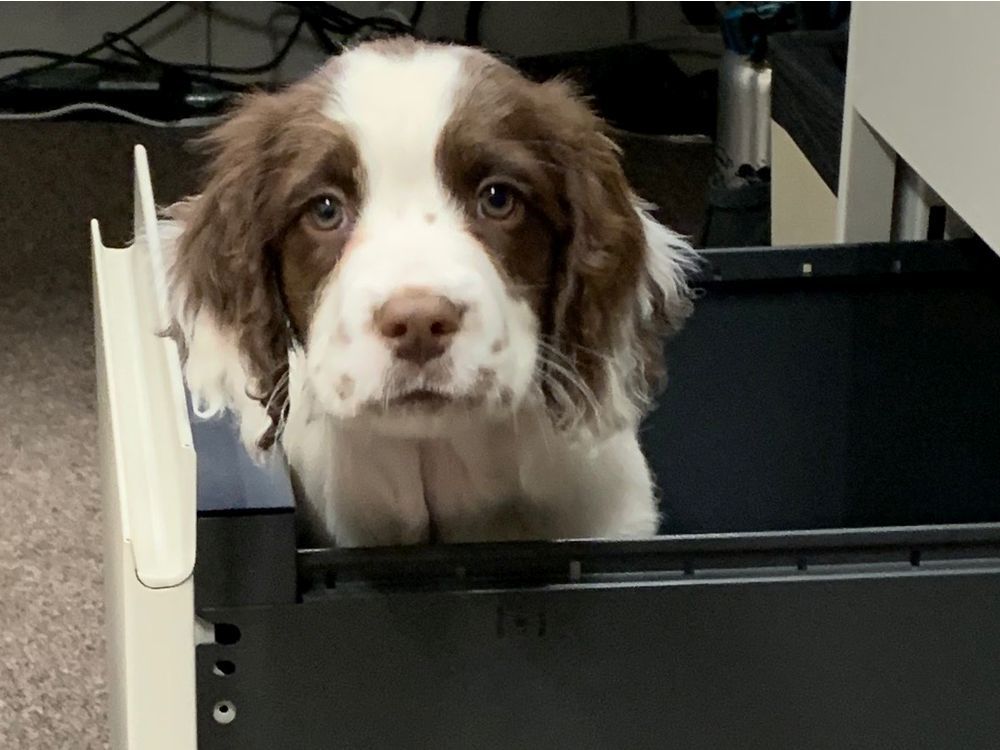Vancouver Coastal Health announces name of newest superbug-sniffing pup

Credit to Author: Harrison Mooney| Date: Fri, 08 Nov 2019 01:34:23 +0000
He already has a job. Now Vancouver Coastal Health’s newest superbug-sniffing service dog finally has a name.
The four-month-old English springer spaniel pup, set to join his sister, Traveller, in the family business of sniffing out a superbug that attacks people with compromised immune systems, will be named Finn, VCH announced on Thursday.
More than 900 people cast ballots to name the puppy in the past month, after VCH whittled a list of 60 suggested names down to four and put the decision to a public vote.
Finn, as in Huckleberry, beat out Olaf (short for olfactory), Clouseau (a reference to the famed movie inspector), and Magnum (like the private investigator).
“Finn is a great name for our new recruit,” said K9 handler Teresa Zurberg. “He is a clever guy,” just like his namesake, Huckleberry Finn.
But while Huckleberry Finn has a nose for adventure, VCH hopes his canine counterpart has a nose for C. difficile, a leading cause of potentially deadly, infectious diarrhea in health facilities.
Finn and his sister, Traveller, will spend the next several months learning the basic skills and behaviours expected of all service dogs with the C. Difficile Canine Scent Detection Program at Vancouver Coastal Health
The infection can be detected by specially trained dogs, whose hyper-acute sense of smell allows them to find germs lingering on surfaces even after hospital areas have been cleaned.
VGH called in the dogs three years ago and they alerted 391 times to odours from C. diff during 659 searches at the hospital from May 1, 2017, to Oct. 31, 2018, according to a study published in August in the Canadian Journal of Infection Control.
Since 2016, the canine scent detection teams at VCH have searched hundreds of hospital areas for C. difficile. Finn and Traveller, the rookies on the squad, will be mentored by standout sniffers Angus and Dodger, whose infection prevention expertise has brought them to over 30 Canadian healthcare facilities.
Finn and Traveller will spent the next several months learning the basic skills of service dog service, and at around a year old, both will begin their specialized training to become C. difficile detection dogs.
“Through the C. Difficile Canine Detection Program at Vancouver Coastal Health, dogs such as Finn are helping to keep patients and their families safe and healthy. C. difficile is one of the most common infections that people get in hospitals,” said Health Minister Adrian Dix. “A big thank you to the talented team that trains the dogs to do such important work.
“Our province is grateful for the valuable contributions of the C. difficile detection dogs in protecting British Columbians.”
— With files from Scott Brown
CLICK HERE to report a typo.
Is there more to this story? We’d like to hear from you about this or any other stories you think we should know about. Email vantips@postmedia.com.